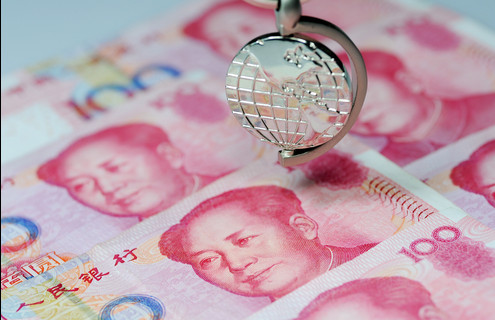The UK has overtaken Singapore as an offshore clearing centre for the Chinese currency renminbi (RMB), jumping to second place after Hong Kong.
According to the SWIFT RMB Tracker, the value of the UK’s RMB payments increased by 21 percent between March 2014 and March 2016.
Hong Kong remains as the largest offshore RMB centre by far, however, processing 72.5 of all RMB payments. The UK now processes 6.3 percent, followed by Singapore, which processes 4.6 percent.
The SWIFT data also showed that RMB transactions make up the largest portion of all payments between the UK and China, accounting for 40 percent. The Hong Kong dollar accounts for 24 percent of these payments, and the British pound comes in third, accounting for 12 percent.
Stephen Gilderdale, managing director for the UK, Ireland and the Nordics at SWIFT, said: “Since the China Construction Bank, London branch, became a clearing bank in the United Kingdom in June 2014, there has been a steady growth of RMB payments between the United Kingdom and China and Hong Kong.”
He added: “Offshore RMB clearing centres are driving greater use of the currency in global trade, and countries such as the United Kingdom are reaping the benefits.”
RMB remains stable as the fifth most active currency for global payments by value, with a share of 1.88 percent. This represents a slight increase from the 1.74 percent share recorded in February 2016.
According to the latest SWIFT figures, the US dollar is still the most commonly used currency, globally, making up 43.09 percent of all international payments. This is followed by the euro, with 29.83 percent, the British pound with 8 percent, and the Japanese yen, which makes up 3.27 percent.
 Image: Shutterstock
Image: Shutterstock 